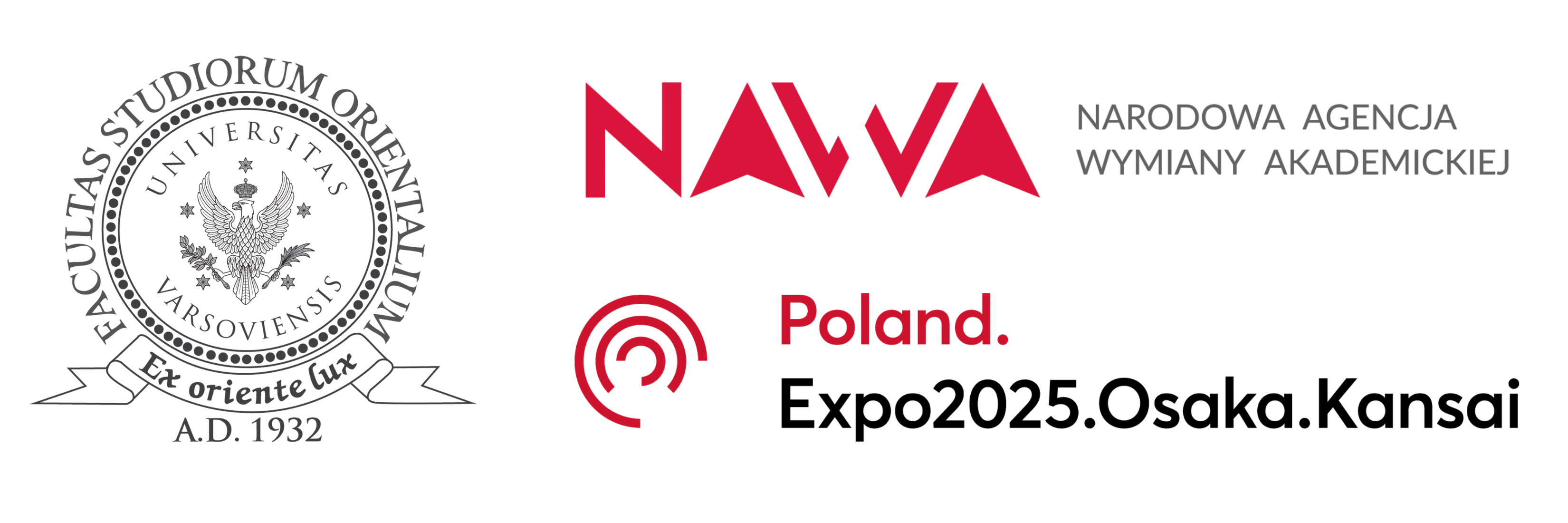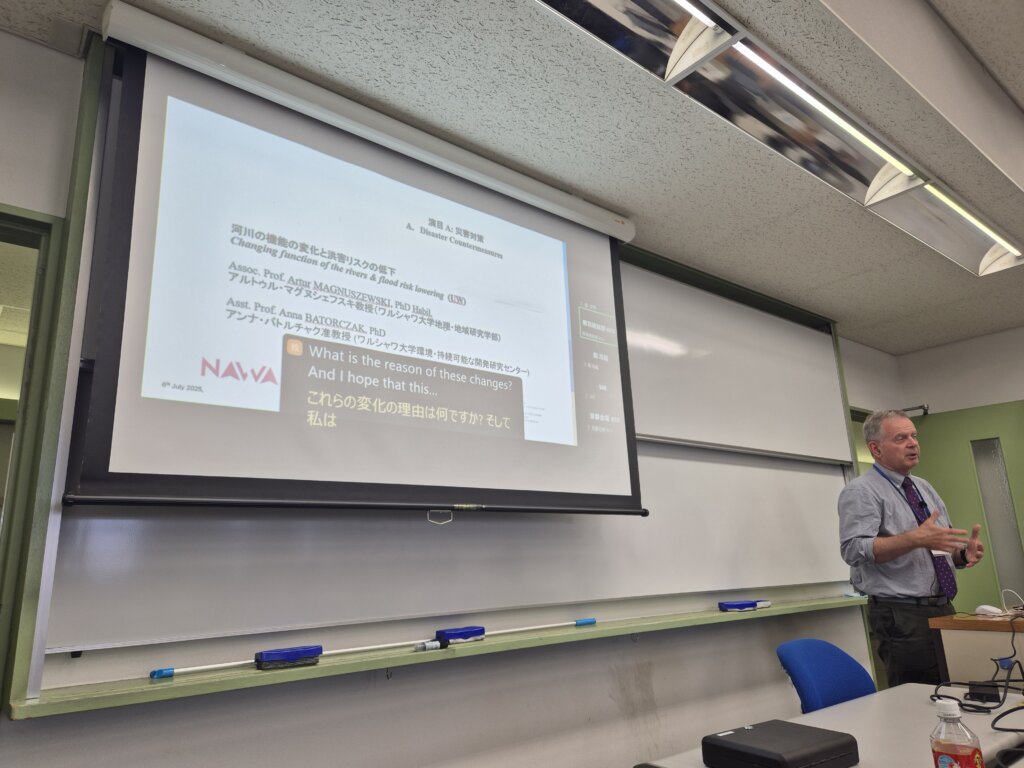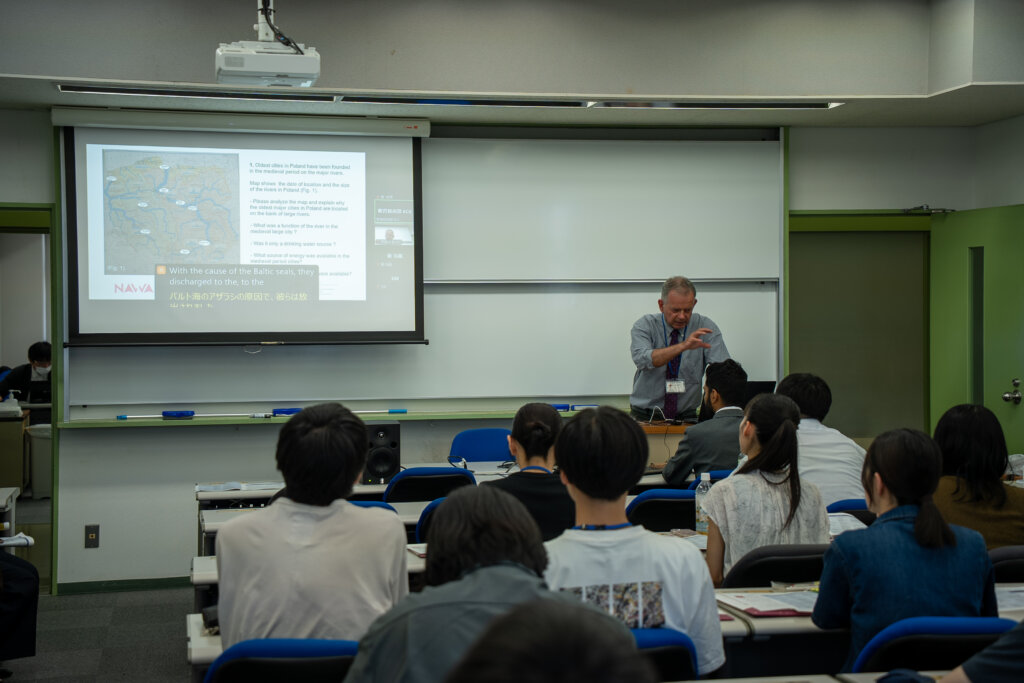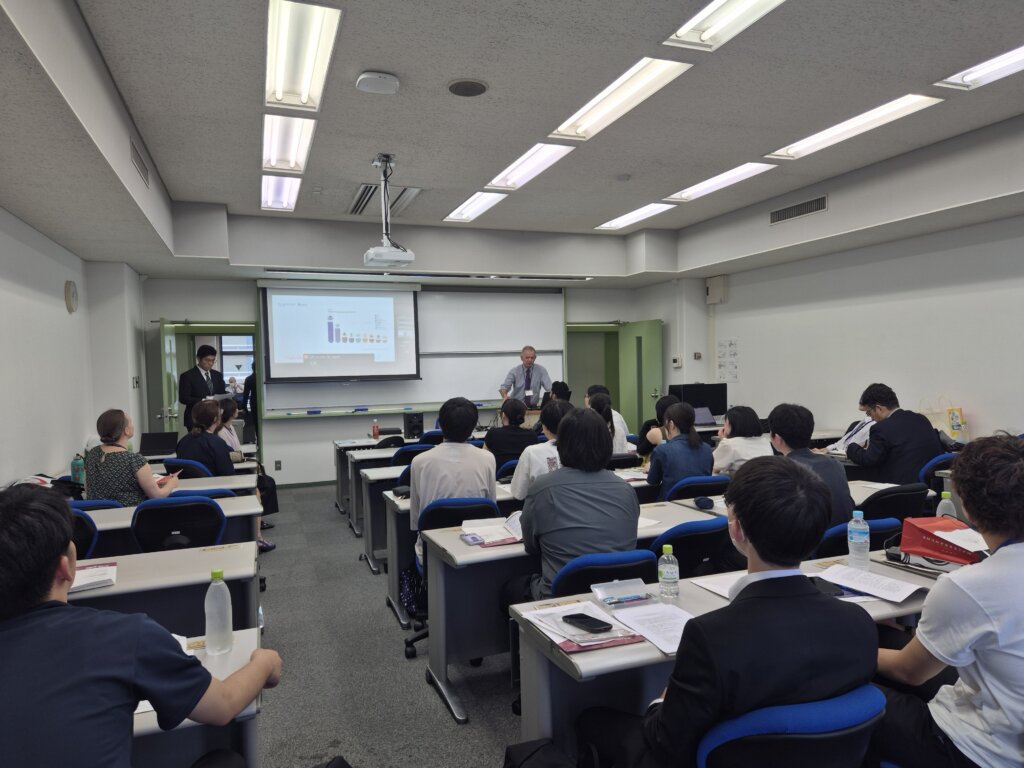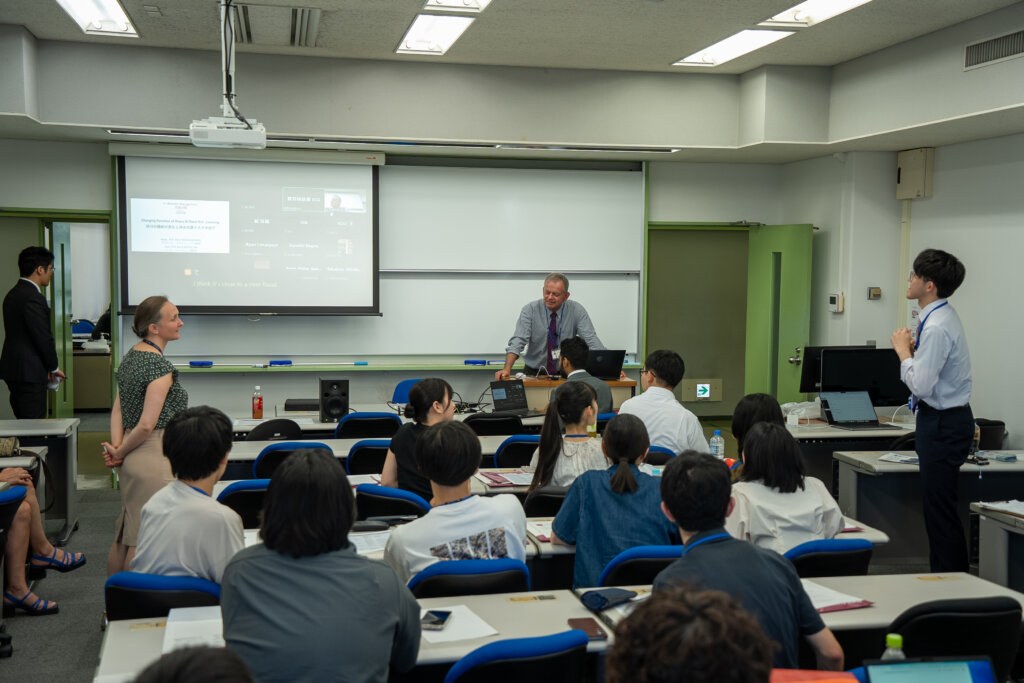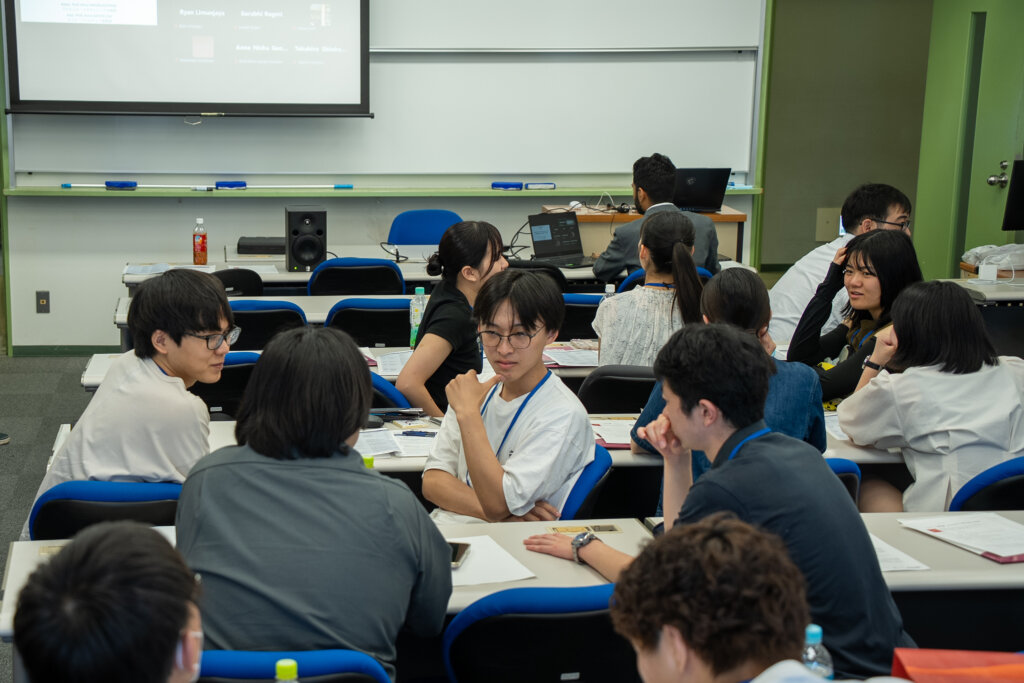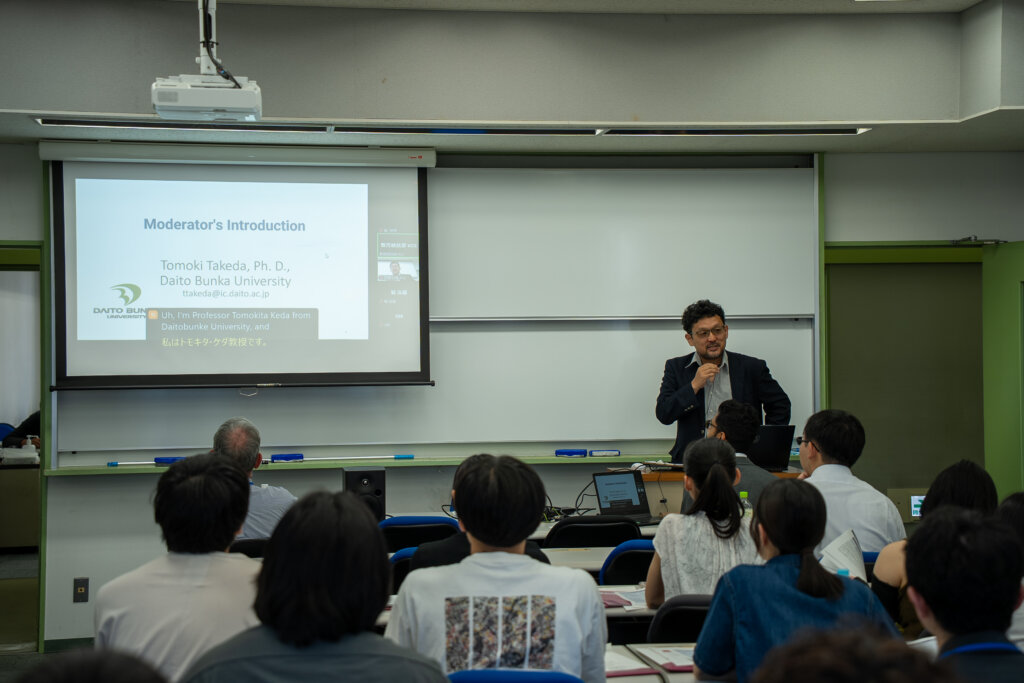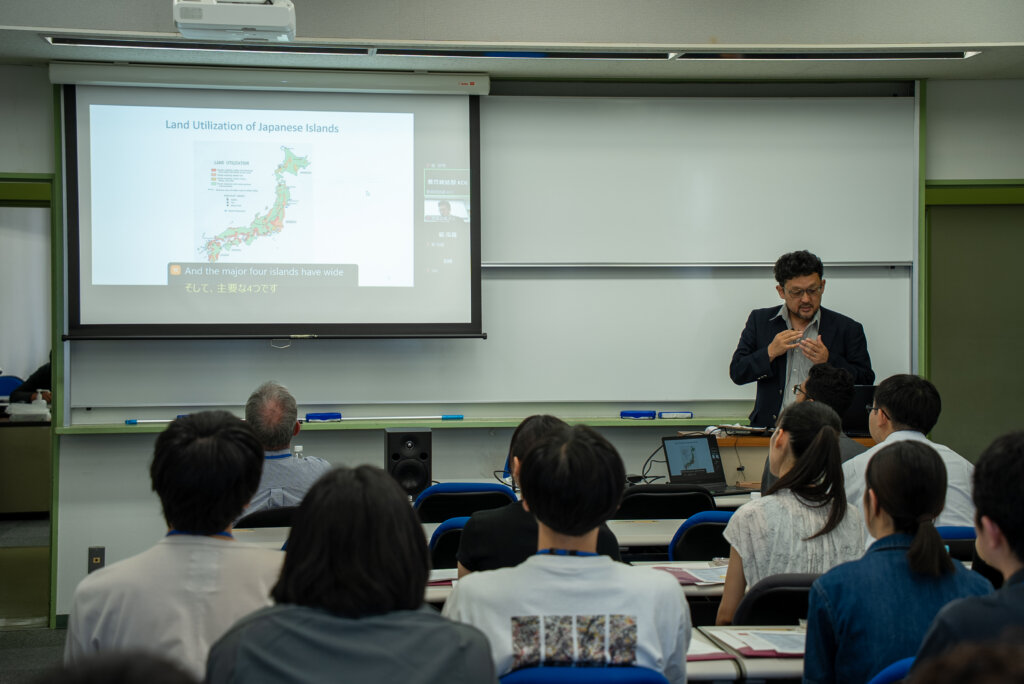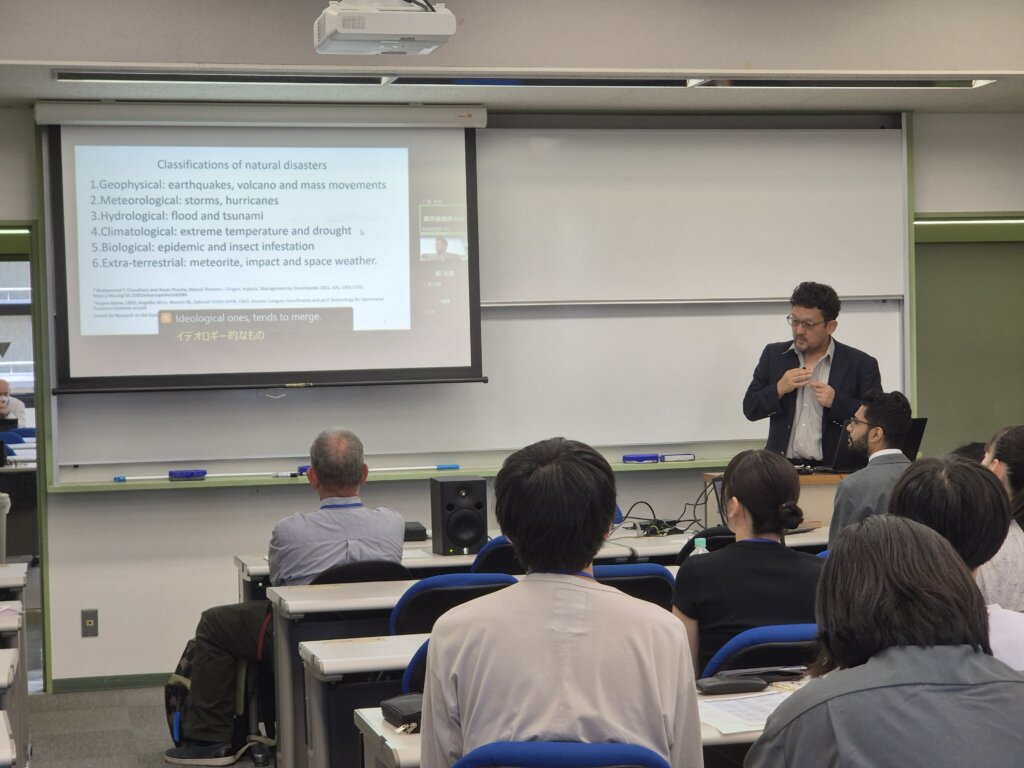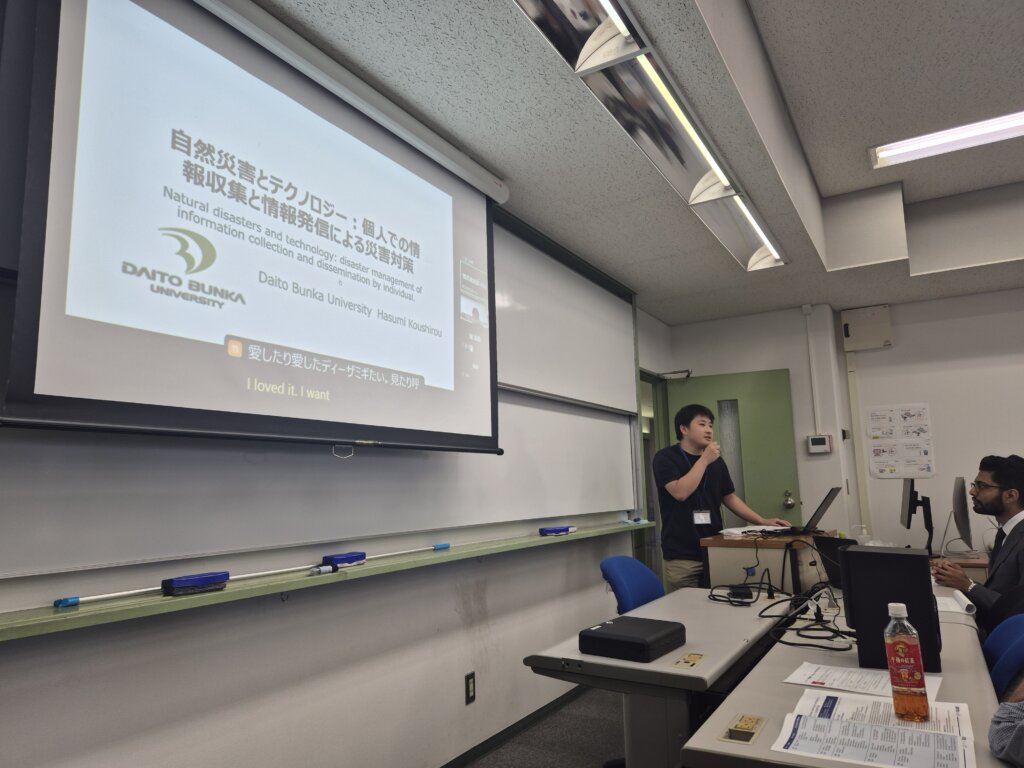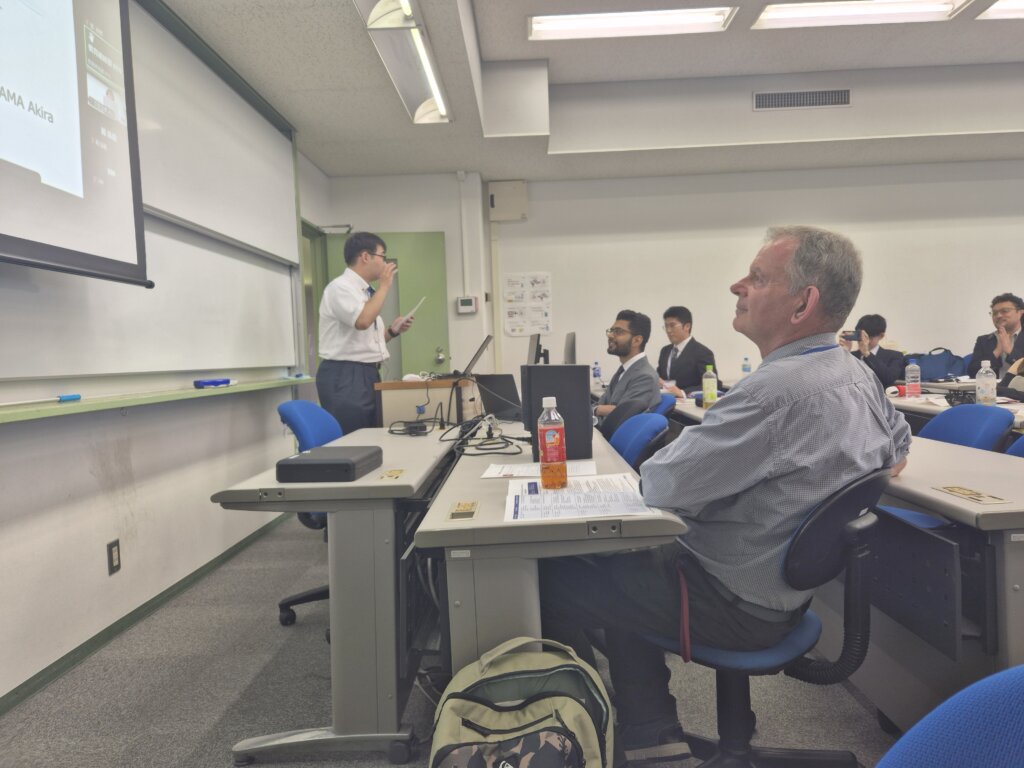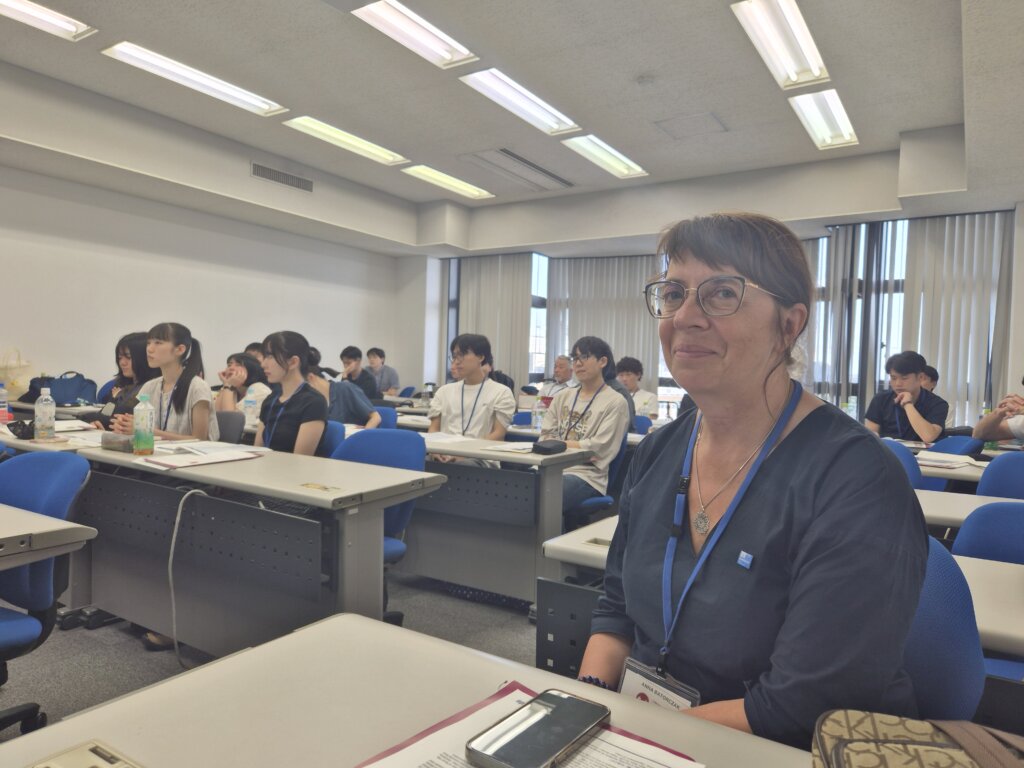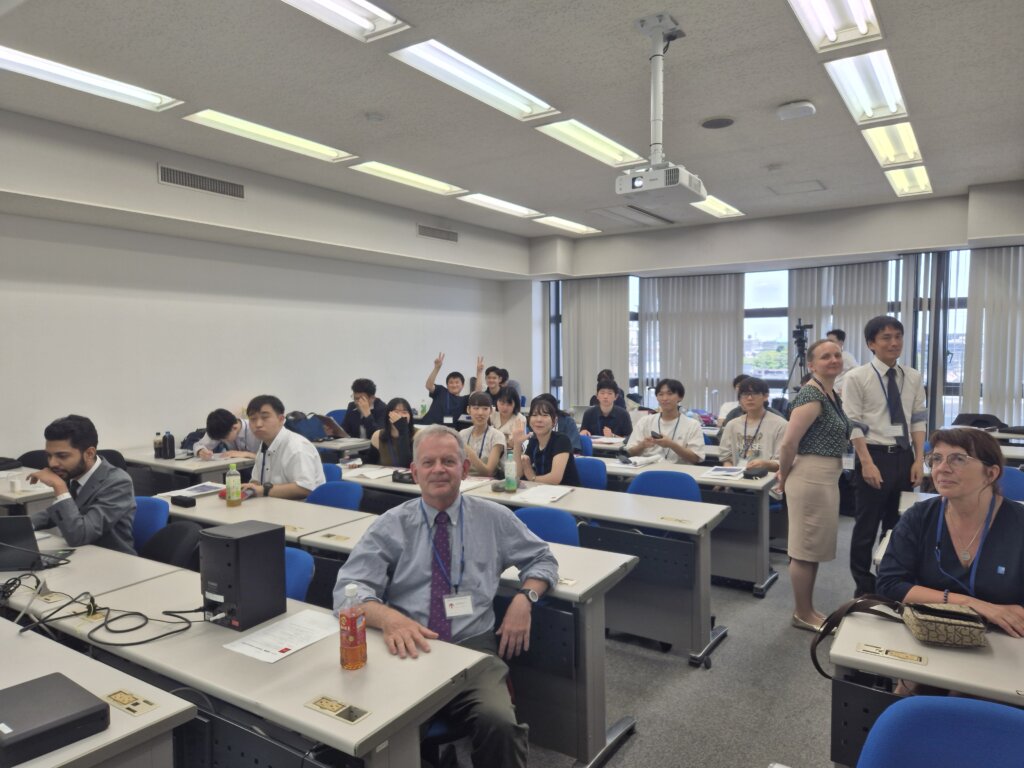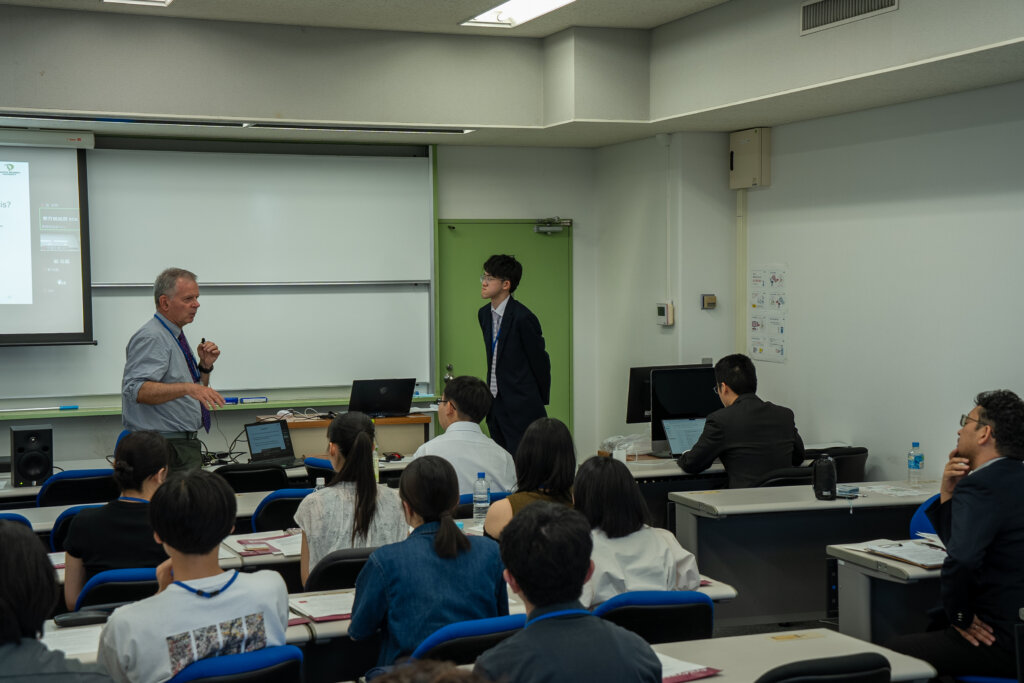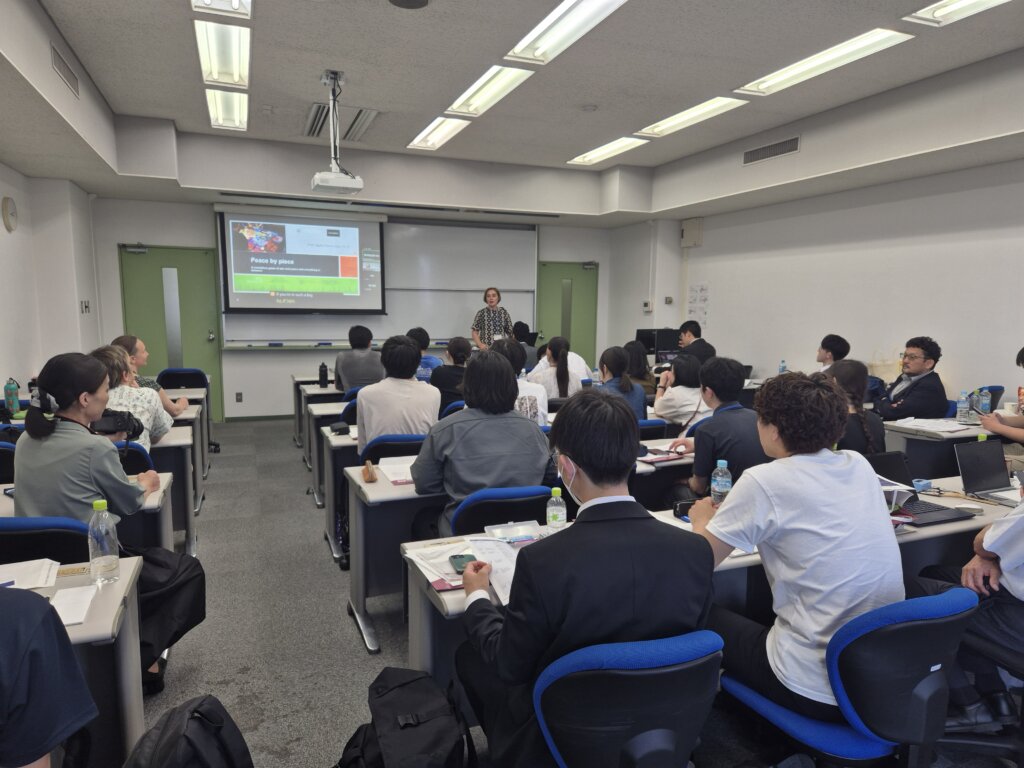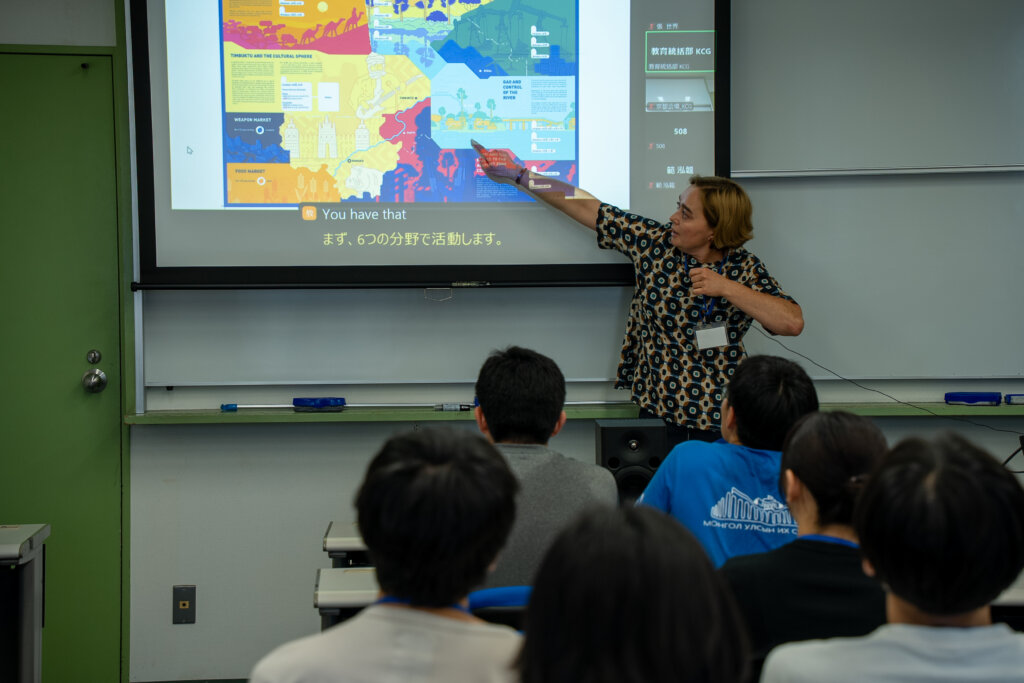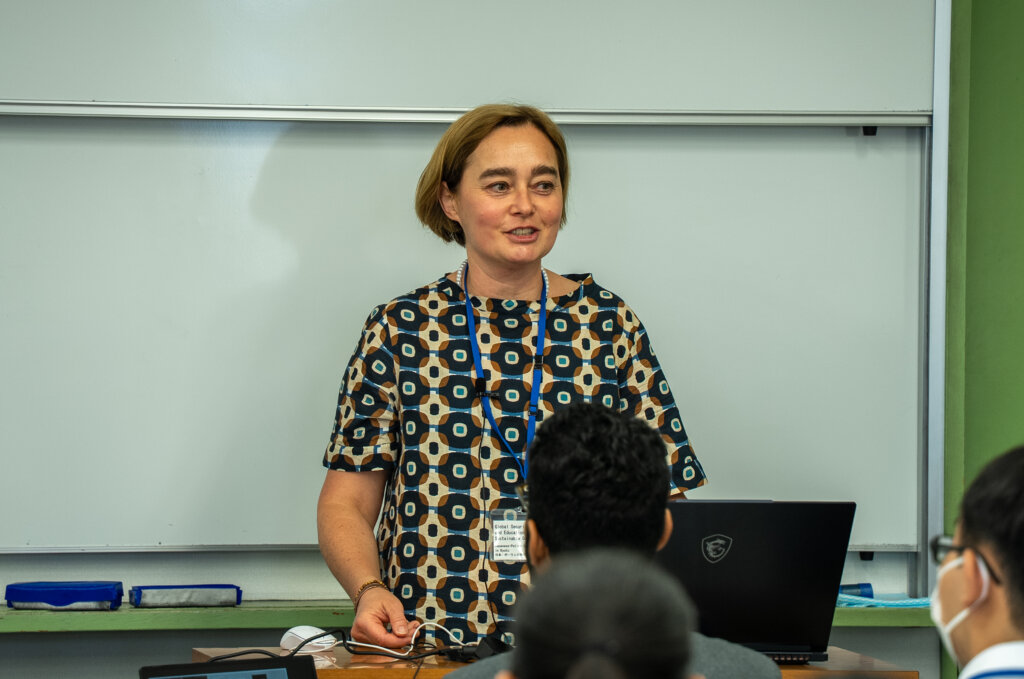7/07/2025 Bezpieczeństwo ludzkie i budowanie pokoju
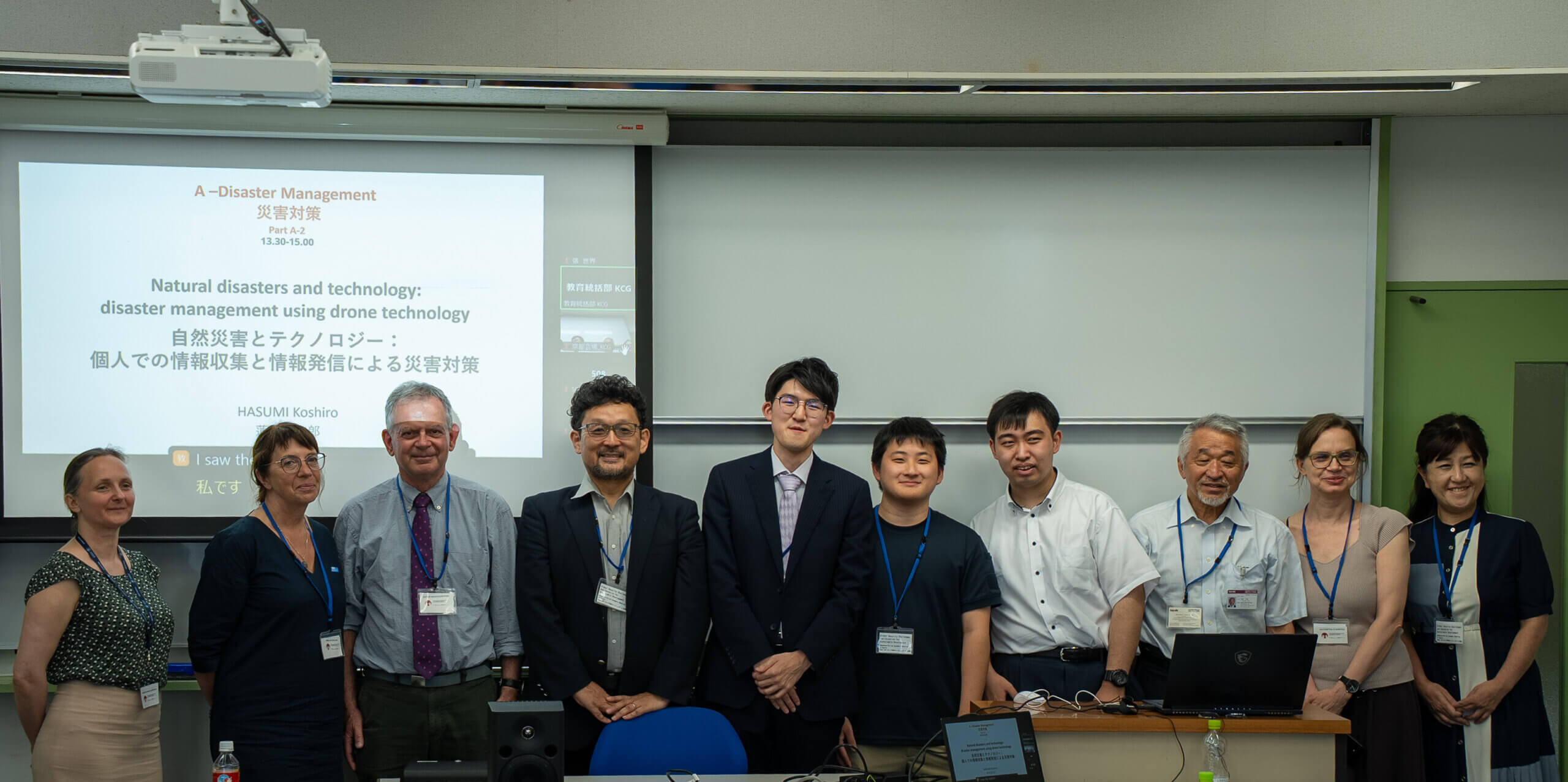
Kategoria: Sympozja i warsztaty studenckie
Polsko-japońskie warsztaty poświęcone problematyce bezpieczeństwa człowieka, realizowane przez Uniwersytet Warszawski w ramach programu NAWA “Kierunek EXPO 2025”, odbyły się 7 lipca 2025 r. w Kioto. Pierwszy z nich, zatytułowany Changing function of the rivers and flood risk lowering, dotyczył przeciwdziałania skutkom powodzi oraz adaptacji do zmian klimatu w miastach. Warsztaty te poprowadził prof. Artur Magnuszewski z Wydziału Geografii i Studiów Regionalnych przy wsparciu dr Anny Batorczak z Uniwersyteckiego Centrum Badań nad Środowiskiem Przyrodniczym i Zrównoważonym Rozwojem. Uczestniczyli w nich studenci z trzech japońskich uczelni: Daito Bunka, Meijo oraz Kyoto Computer Gakuin. Prof. Magnuszewski przedstawił m.in. historyczne uwarunkowania lokacji polskich miast nad rzekami w średniowieczu, a następnie żeglugowe wykorzystanie rzek w XIX w. i współczesne odejście od transportu śródlądowego. Opowiedział także o usługach ekosystemów i rewitalizacji rzek na przykładzie Wrocławia i Warszawy. Zadaniem studentów było zaproponowanie rozwiązań zmniejszających ryzyko powodzi w projektowaniu rewitalizacji bulwarów rzecznych w miastach.
Kolejne warsztaty pod hasłem “Społeczeństwo wobec katastrof” poprowadziła reprezentacja Uniwersytetu Daito Bunka (DBU). Wprowadzenie pt. How should society respond to large-scale disasters? Great East Japan Earthquake and multiple natural disaster wygłosił prof. Takeda Tomoki (Wydział Prawa). Prezentacje przygotowali również studenci DBU, w tym: Sugiyama Akira (What makes a society resilient to large-scale disasters?), Nomura Keita (Natural disasters and education: how to pass on the lessons of Fukushima) oraz Hasumi Koshiro (Natural disasters and technology: disaster management using drone technology).
Warsztaty Strategic Gaming in Conflict Stabilisation poświęcone tematyce budowania pokoju i stabilizacji państwa dotkniętego konfliktem poprowadziła prof. Agata Dziewulska z Centrum Europejskiego UW, współtwórczyni strategicznej gry symulacyjnej Peace by Piece.
Organizatorzy wydarzenia: Uniwersytet Warszawski, Kyoto College of Graduate Studies for Informatics, Daito Bunka University
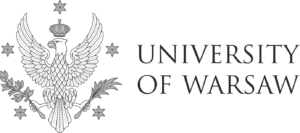

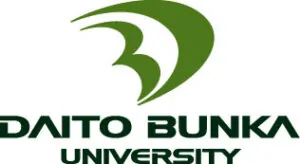
Program wydarzenia: Japanese-Polish Academic Meeting in Kyoto: Global Security Challenges and Education
Opis warsztatów:
Changing function of the rivers & flood risk lowering (UW)
Cities have been historically located on the major rivers. Students will get the map with the location of large cities in Poland with the marked year of their foundation. The question is why in the medieval period access to large rivers was so important. And why in 19th century large cities were located in the places of mining and good transportation roads. Changing role of the rivers in the cities will be discussed and film ‘Odra we Wrocławiu’ will be an illustration. River waterfront is a new very attractive area of the development but this is also an area of flood risk. Students will propose the solutions to lower the flood risk in waterfront of the modern cities. Solutions from their discussion will be presented as a outcome form the workshop. The good practice example from Warsaw Vistula River boulevards will be shown as an example of flood risk lowering by adaptation.
How should society respond to large-scale disasters? Great East Japan Earthquake and multiple natural disaster (DBU)
Every year quite a few interested students of DBU visit the disaster affected areas around Fukushima Daiichi nuclear plants including the site itself since 2015. The plants, two of which were severely damaged in the Great East Asian Earthquake of 2011 are being torn down and are under complete control. Ironically, that explains why we tend to overlook the fact that it was the disaster we must not forget and there are still quite a lot of residents who are not allowed to return to their homes. With an increasing number of natural disasters hitting Japanese archipelago every year we are facing the difficulties how to pass down the lessons and the memories of disasters such as GEA Earthquake and Hanshin-Awaji Great Earthquake in 1995. The students will in this workshop show their achievements to come up with the effective ways to fight or cope with multiple disasters in the coming future.
Strategic Gaming in Conflict Stabilisation (UW)
Since early 1990s when the new generation of peace operations took off, international peace building missions aiming to stabilize areas affected by violent conflicts have been invariably unsuccessful. It is mainly for the lack of connection between academic world and practitioners planning and conducting peace missions. ‘Peace by piece’ is a simulation game of stabilizing Mali – for many decades a hard case for peace-builders. The game is based on interdisciplinary academic research in fields of security studies, political science, anthropology, economics and sociology which allows testing old schemes and offers new solutions. A sandbox construction of the game leaves an open end with no predefined results and makes the game useful to university students (in teaching using Experiential Learning Model), academics keen to verify their hypotheses as well as practitioners anxious to test their plans before deployment.
***
Bezpieczeństwo ludzkie w dobie zmian klimatycznych
Kontynuację warsztatów w Kioto stanowi wspólny projekt “Bezpieczeństwo ludzkie w dobie zmian klimatycznych”, w ramach którego w dniu 19 września 2025 r. na Uniwersytecie Warszawskim odbyło się seminarium eksperckie Building local societies’ resilience in times of crises: From spontaneous response to structured strategies, zorganizowane przez Platformę Zielonego Dialogu, Centrum Europejskie, Katedrę Japonistyki oraz Uniwersytet Daito Bunka (Tokio). Inicjatywa ta zaowocowała m.in. opracowaniem koncepcji gry symulacyjnej Czyste źródło, wspierającej proces nauczania o mechanizmach przeciwdziałania i postępowania w przypadkach katastrof naturalnych, w tym skażenia środowiska.
Kryzysy środowiskowe, zwłaszcza te dotyczące jakości wody i powietrza, należą do najbardziej złożonych wyzwań współczesnych społeczeństw. Ich skutki mają zasięg zarówno lokalny, jak i globalny, obejmując zdrowie publiczne, zaufanie społeczne oraz stabilność instytucjonalną. Gra strategiczna Czyste źródło stanowi odpowiedź na potrzebę rozwijania narzędzi w zakresie zarządzania kryzysowego, które pozwolą przedstawicielom instytucji, organizacji pozarządowych, czy społeczności nie tylko zrozumieć mechanizmy reagowania, ale także doświadczyć ich poprzez decyzje podejmowane w warunkach niepewności. Narzędzia tego rodzaju umożliwiają planowanie scenariuszy oraz sprzyjają procesom budowania zaufania społecznego poprzez lepszą komunikację między obywatelami, samorządami i władzami centralnymi. Projekt Czyste źródło pokazuje, że gry symulacyjne mogą być nie tylko narzędziem dydaktycznym, ale także metodą badań i środkiem służącym wzmacnianiu społecznej rezyliencji. Wspólne sesje symulacyjne dla uczestników z Polski i Japonii pozwalają analizować różnice w postrzeganiu autorytetu, odpowiedzialności, procesów decyzyjnych i innych uwarunkowaniach, co sprawia, że gra ta może również pełnić rolę interkulturowego laboratorium.
Projekt finansowany przez Narodową Agencję Wymiany Akademickiej w ramach Programu Międzynarodowe Wydarzenie Naukowe na Wystawie Światowej Expo 2025 w Osace, Kansai (nabór 2024/Kierunek EXPO 2025 – umowa nr BPI/OSA/2024/1/00020/DEC/01).
